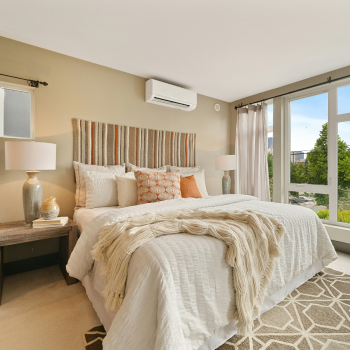The Earning Potential: How Much Do Airbnb Property Managers Make in Australia?

The rise of the short-term rental market has created a demand for specialised property managers for Airbnb. While property owners often wonder about management fees, a common related question is: how much do Airbnb property managers make? Understanding their earning potential involves looking at how they are compensated and the factors influencing their income.
Unlike a salaried employee, most Airbnb property managers, especially independent operators or small companies, earn income based on the performance of the properties they manage.
Primary Income Source: Commission on Rental Revenue
The primary way Airbnb property managers generate income is through a commission model. As we detailed in our article on how much Airbnb property managers charge owners, this commission is typically a percentage of the gross rental income earned by each property. This rate usually falls between 20% and 40% in Australia.
So, if a property earns $5,000 in a month and the management fee is 25%, the property manager grosses $1,250 from that single property for that month before their own business expenses.
Factors Influencing an Airbnb Property Manager’s Earnings:
Several key factors determine how much an Airbnb property manager can ultimately make:
- Number of Properties Managed: Scale is crucial. Managing more properties generally leads to higher gross revenue for the manager.
- Performance of Each Property: Higher occupancy rates and nightly rental prices for the properties they manage directly translate to higher commission earnings.
- Commission Rate Negotiated: The percentage they agree upon with property owners.
- Their Own Business Expenses: This is a critical point. A manager’s *net income* is their gross commission revenue minus their operational costs. These can include:
- Software subscriptions (PMS, channel managers, pricing tools).
- Marketing and advertising costs for their services.
- Insurance (professional indemnity, public liability).
- Staff salaries (if they have a team for cleaning coordination, guest services, etc.).
- Office space (if applicable) and utilities.
- Travel expenses.
- Accounting and legal fees.
- Efficiency and Systems: Well-streamlined operations can reduce costs and allow a manager to handle more properties effectively.
- Market Conditions: The overall demand for short-term rentals in their operating area plays a significant role.
Illustrative Earning Potential (Hypothetical):
It’s difficult to give an exact figure, as it’s highly variable. However, consider this:
- A solo manager handling 5 well-performing properties, each generating an average of $1,000/month in commission for them, would gross $5,000/month. After deducting their business expenses, their net income would be lower.
- A larger management company with 50 properties could generate significantly more gross revenue but would also have much higher overheads due to staff and infrastructure.
Successful managers often build a reputation for being among the best Airbnb property management services, which helps them attract more clients.
The Role of Property Appeal in a Manager’s Success
A key, often overlooked, factor in how much Airbnb property managers make is the quality and appeal of the properties in their portfolio. Properties that are beautifully presented, well-maintained, and offer a superior guest experience tend to command higher nightly rates and achieve better occupancy.
This is where the principles championed by Airletto become incredibly relevant. When a property is staged with the same care and aesthetic consideration as a luxury display home, it becomes far more attractive to potential guests. This leads to:
- Increased booking revenue for the owner.
- Consequently, higher commission earnings for the property manager.
Therefore, property managers who work with owners willing to invest in top-notch presentation often see better financial results for both themselves and their clients.
Conclusion: A Business of Performance and Partnerships
Ultimately, how much Airbnb property managers make is a reflection of their business acumen, the effectiveness of their services, the number and quality of properties they manage, and their ability to control costs. It’s not a fixed salary but an income derived from performance. Successful managers thrive by delivering excellent results for property owners, often aided by managing properties that are attractive, well-maintained, and highly desirable to guests.
